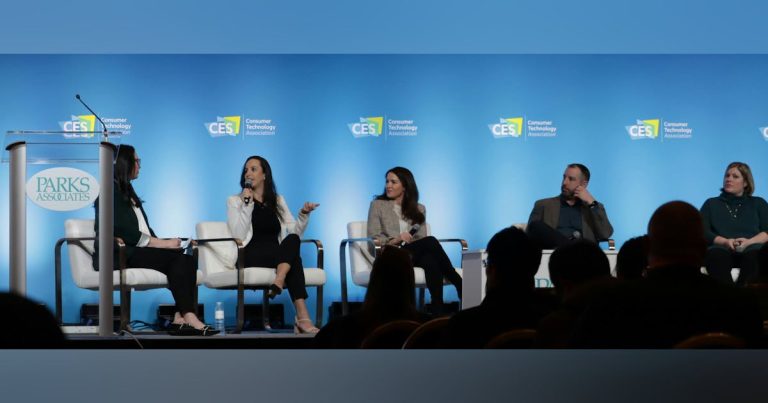Trend: Advances in smart lighting controls. These systems will become more intuitive and user-friendly, allowing homeowners to easily adjust the ambiance of their home while also enhancing security through automated lighting schedules. Currently, 13% of internet-connected US households own smart light bulbs and 6% own smart lighting systems. Big changes will come in 2024 as lighting emerges as a critical component, especially in terms of home security and energy efficiency.
This trend is highlighted by notable industry moves such as NRG's $5.6 billion acquisition of Vivint and the introduction of its lighting division.
Beyond basic lighting, these advanced systems are designed for a variety of purposes, including enhancing the aesthetics of the home, providing an enjoyable and customizable experience, and importantly, creating a safer environment for seniors to live in the places they are familiar with. As this trend continues, lighting is expected to not only contribute to home security and energy management, but also play a key role in shaping the living experience, blending functionality and personalization.
Trend: Energy management and energy efficiency continue to drive adoption of smart home solutions. Shelly Group, a European leader, launched more than 10 switch and sensor products that enable advanced control, integration, and metrics. Additionally, the Home Connectivity Alliance (HCA) announced a new standard that allows home appliance OEMs to share energy consumption data, facilitating energy monitoring use cases in the smart home. This could lead to more sustainable and efficient home management systems.
Energy management systems offer a dual benefit to consumers by providing real-time insights, enabling cost savings, and facilitating integration with utility providers to participate in demand response programs that contribute to overall energy reductions.
Additionally, the ability to monitor and manage energy consumption through smart home systems addresses consumers' growing environmental consciousness and provides potential cost savings. Parks Associates will discuss the role of smart home devices and utilities at its 15th annual Smart Energy Summit, co-hosted with DISTRIBUTECH in Orlando, Feb. 27-28.
Trend: Smart bathroom tech. In addition to lighting, a notable focus at CES was the strong presence of Kohler, which showed off smart toilets and showers. How does this tie into security? Through elderly care and health monitoring.
Smart toilets are transforming personal healthcare by incorporating biometric data collection into everyday life. These advanced devices are designed to analyze waste to provide valuable health information, potentially detecting nutritional deficiencies, gastrointestinal issues, and even early signs of chronic disease. Smart toilets have a profound impact on elderly care, as they can monitor health indicators.
By integrating health monitoring into the most private and mundane aspects of our lives, smart toilets represent a breakthrough in proactive health management and personalized care, giving users a powerful tool. While the field is still in its infancy, especially due to privacy concerns, cost and a lack of integration with healthcare providers, it's clear that manufacturers are embracing the next generation of toilets.
Trend: Health and wellness for the older population, but with a focus on safety and security. In collaboration with AARP's AgeTech Collaborative, the Samsung Digital Health House showcased a range of innovative solutions designed to support aging at home. The exhibit featured products from 10 startups offering unique technologies aimed at improving the health and wellness of older adults. Showcasing products for the living room, kitchen, bedroom and bathroom, the exhibits featured applications of interactive gaming, health monitoring, AI-assisted wellness coaching, ambient vital signs sensing and smart home healthcare technology.
These products represent a broader movement in healthcare towards in-home solutions that leverage advances in AI, connectivity and sensor technology, focused on creating seamless, integrated experiences that meet the health and lifestyle needs of older adults and promote independent living and proactive health management.
Trend: The importance of expert support in the smart home sector. The involvement of tradesmen and specialist services through companies such as OliverIQ, Daisy and Nice can be crucial in the installation and maintenance of more complex smart home systems.
According to a study by Parks Associates, the average home now has 17 connected devices. Device setup and integration with other products, as well as device management, remain challenges that need to be solved.

